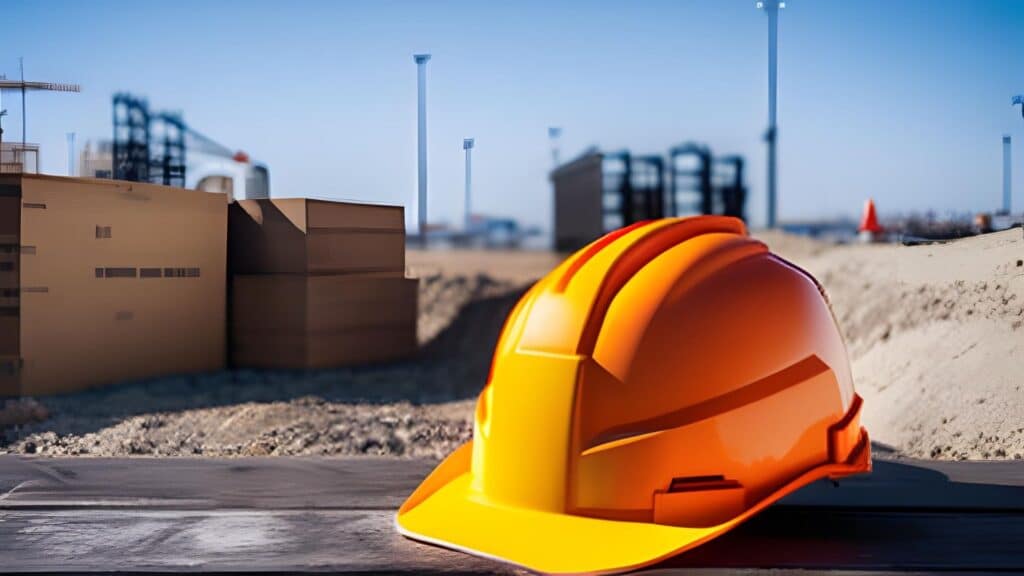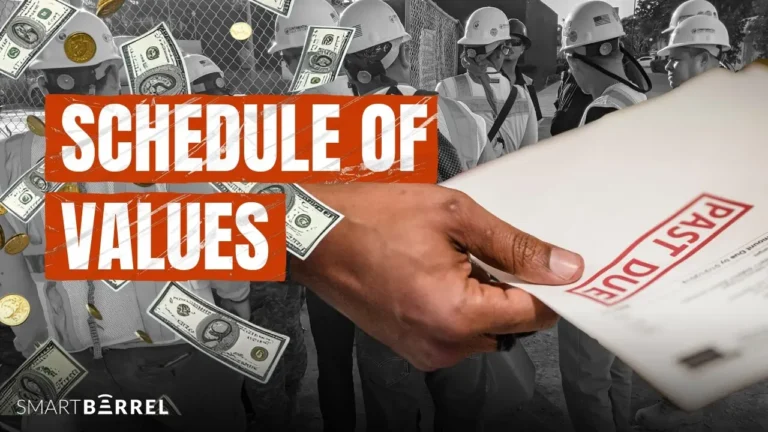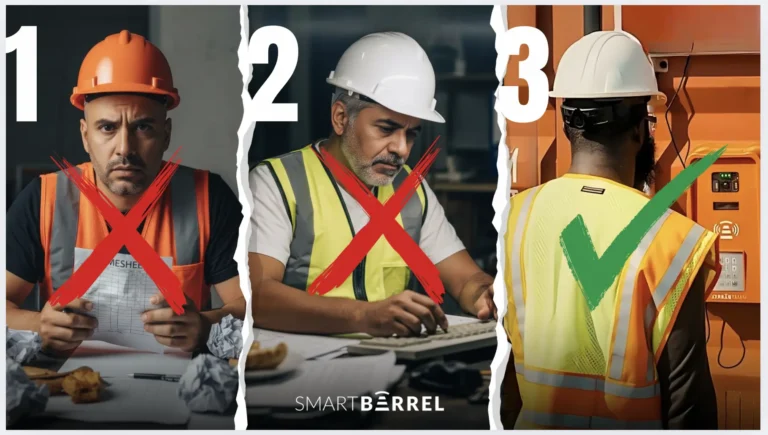It’s 2025, and AI is making its way into every aspect of our lives: writing, image generation, research, data analysis, healthcare. ChatGPT can do your kids’ homework and reply to emails for you. But some of the coolest innovation is happening in the place you might least expect it: construction AI tools.
There are countless applications for artificial intelligence in construction. Modern construction companies are using these tools to improve bidding, increase job profitability, and to become more efficient in their processes. And the innovation isn’t limited to the office, either: four of the companies featured here are using construction AI to help solve problems on the job site.
In this post, we’ll talk about the top seven innovative AI tools for construction in 2025. You’ll see how machine learning and AI in construction can make your projects more efficient, safer, and cost-effective.
Togal.AI
Do construction takeoffs by hand, and you’ll spend hours sitting at a desk reviewing plans, taking measurements, and running calculations. It’s tedious work that requires a steady hand and takes years to learn. More advanced construction companies use computer programs to accelerate the work, but it still requires hours of time from an experienced person to create accurate takeoffs. Wouldn’t it be great if there was a construction AI that could do that for you?
Meet Togal.AI, the construction estimating software that does days’ worth of manual takeoffs in seconds. It harnesses the power of AI and machine learning in construction to automate the tedious process of reviewing plans, taking measurements, and running calculations. Construction estimators can accurately bid more work in a fraction of the time, which means better margins and more won bids.
As if they were not already on the cutting edge, Togal.AI recently announced the launch of their newest feature, ChatGPT for estimating. Now you can directly interact with your plan set through a chat interface, extracting data, calculating takeoffs, and more with a simple prompt.
SmartBarrel
SmartBarrel is a time tracking and manpower tracking solution designed to eliminate time fraud, buddy punching, and excuses for collecting accurate time in the field. They work to win over the field with an easy to use, intuitive solution which in turn provides better data to the office.
At SmartBarrel, we’re no stranger to artificial intelligence in construction. We use AI to power our Biometric Facial Verification to track worker time in the field. The hardware and software solution uses machine learning technology which means that no worker pictures need to be uploaded beforehand. The solution automatically verifies workers on the job site by comparing an individual clock-in image to previous images for that worker.
SmartBarrel’s ability to confirm the worker’s identity dramatically reduces the time required to verify timecard data, providing contractors with the most accurate labor hours to help with understanding actual job costing.
To further embrace AI, when pictures are taken, SmartBarrel uses Machine Learning to automatically scan for PPE, to enhance safety on job sites. All timesheets are automatically synced with Procore, CMiC, Foundation, Viewpoint Vista and more.
One SmartBarrel customer shared that since they switched to SmartBarrel, they’ve reduced their payroll processing time by 8X and eliminated most time tracking errors and fraud. That frees their team to focus on higher-impact work, including the ability to analyze their data to make faster and more accurate decisions going forward.
SubBase
SubBase has built a modern supply chain software that provides specialty trade subcontractors a central place to manage the flow of material data. They use artificial intelligence to automate the invoice reconciliation process.
For most purchasing managers who are doing invoice reconciliation on paper, the process can take up most of their week. First they have to print purchase orders and match them up with the right invoice and delivery ticket. Then each set of PO, invoice, and delivery ticket has to be reviewed for accuracy and approved by the project manager.
The SubBase AI eliminates the need to find and extract data. The AI automatically compares the PO, invoice, and delivery ticket, and extracts the data into the SubBase system. Reviewing and approving invoices is literally done at the click of a button. Even better, the final job costs can be automatically synced with Quickbooks, Procore, or a range of other project management tools, keeping your project team up to date on budget.
It takes the SubBase AI an average of 21 seconds to reconcile an invoice. For a purchasing manager doing invoice reconciliation manually, this is 3-5 minutes of work. When you’re reconciling hundreds of invoices per week, that’s hours of time saved.
Since the AI reconciliation feature launched in February 2023, SubBase has reconciled over 4,000 invoices accounting for over $3.5 million in purchases.
Document Crunch
Construction contracts are legal documents and contain hundreds of details which could individually make or break the success of a project. It’s critical that the contract is understood and followed by all parties involved. Many construction companies have in-house legal counsel whose full-time job is reading and interpreting dense contracts to make sure the terms are favorable and all conditions get met.
Document Crunch uses a sophisticated construction AI to review construction contracts and provide helpful insights for construction teams. Upload your contract, and Document Crunch will highlight potential risks and interpret the legalese into a practical playbook for your project team.
Buildots
Challenges like the ever-changing construction environment, material availability, and change orders mean that a construction project may go off course at any time. The industry’s main solution to this problem is daily reports from the field to stay up-to-date on changes to the site. Even with daily communication between site leaders and project leaders, the industry struggles with improper installation, unauthorized changes, and delays.
Buildots has created a construction management platform that uses helmet-mounted cameras and computer vision to collect real-time data about the status of the project, and provide first-hand information to the project team. By comparing installed work to the plan and schedule, Buildots can alert project stakeholders to potential risks, errors, and delays.
ALICE Technologies
When you’re preparing to build a luxury high-rise or critical infrastructure, the cost of overlooked risks can be hundreds of millions of dollars. And while an experienced team can help to mitigate risk, the uniqueness of construction projects means that there’s always a new set of factors for each project. Everything from subcontractor delays to supply chain issues to regulatory burden has to be considered and accounted for.
To solve this problem, ALICE’s construction simulation software uses artificial intelligence in construction to run through project scenarios and stress test the project schedule. By identifying potential weaknesses in the project plan, project teams and owners can proactively solve problems and reduce risk. It’s a little like seeing the future.
Mercator AI
Government agencies that hire contractors are required to report the information about who they hire publicly. The Federal Acquisition Regulation (FAR) requires that the government conduct its procurement process in a manner that is fair, transparent, and competitive. This includes making information about the procurement process, such as the names of bidders, available to the public.
Mercator’s project detection tool uses AI to review this public data and identify who is working on new projects and help construction companies to identify the right person to contact for a chance to bid on new projects. For general contractors and specialty contractors who bid on public projects, this can eliminate hours of research by pushing the relevant information to them as it becomes available.
In conclusion, AI is transforming the construction industry, and these seven companies are some of the forward thinkers leading the charge. From construction time tracking to predictive analytics, artificial intelligence in construction is making the industry more efficient, cost-effective, and safer for all of us.






